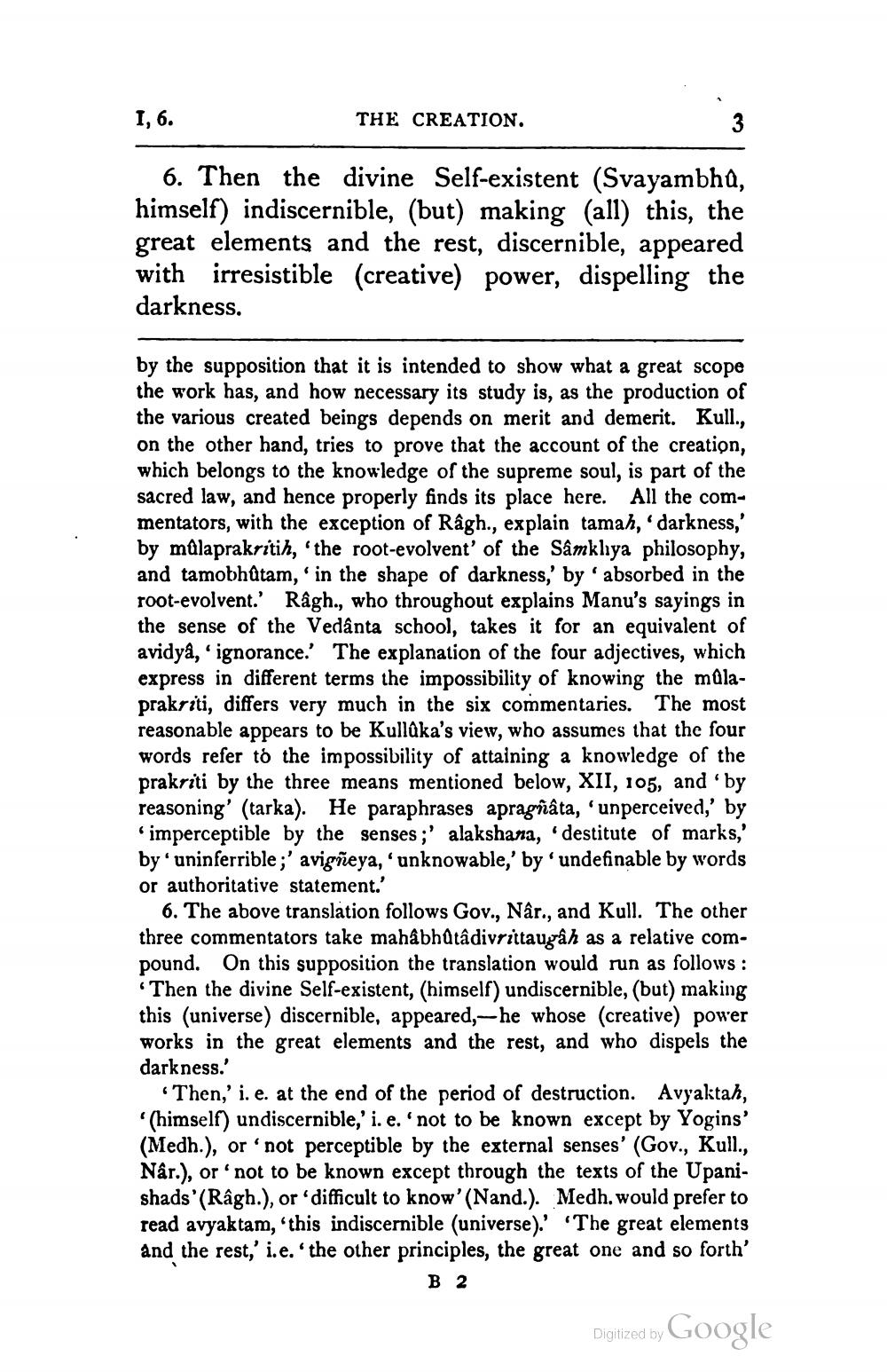________________
1,6.
THE CREATION.
6. Then the divine Self-existent (Svayambha, himself) indiscernible, (but) making (all) this, the great elements and the rest, discernible, appeared with irresistible (creative) power, dispelling the darkness.
by the supposition that it is intended to show what a great scope the work has, and how necessary its study is, as the production of the various created beings depends on merit and demerit. Kull., on the other hand, tries to prove that the account of the creation, which belongs to the knowledge of the supreme soul, is part of the sacred law, and hence properly finds its place here. All the commentators, with the exception of Râgh., explain tamah, 'darkness,' by mûlaprakritih, 'the root-evolvent' of the Samklıya philosophy, and tamobhůtam,' in the shape of darkness,' by 'absorbed in the root-evolvent.' Râgh., who throughout explains Manu's sayings in the sense of the Vedânta school, takes it for an equivalent of avidya, “ignorance.' The explanation of the four adjectives, which express in different terms the impossibility of knowing the mûlaprakriti, differs very much in the six commentaries. The most reasonable appears to be Kullûka's view, who assumes that the four words refer to the impossibility of attaining a knowledge of the prakriti by the three means mentioned below, XII, 105, and by reasoning' (tarka). He paraphrases apragñata, 'unperceived,' by
imperceptible by the senses;' alakshana, destitute of marks,' by'uninferrible;' avigñeya,"unknowable,' by 'undefinable by words or authoritative statement.'
6. The above translation follows Gov., Nâr., and Kull. The other three commentators take mahâbhQtâdivrittaugah as a relative compound. On this supposition the translation would run as follows:
Then the divine Self-existent, (himself) undiscernible, (but) making this (universe) discernible, appeared,- he whose (creative) power works in the great elements and the rest, and who dispels the darkness.
Then,' i. e. at the end of the period of destruction. Avyaktah, (himself) undiscernible,' i.e. not to be known except by Yogins' (Medh.), or not perceptible by the external senses' (Gov., Kull., Nar.), or not to be known except through the texts of the Upanishads'(Râgh.), or 'difficult to know'(Nand.). Medh.would prefer to read avyaktam, “this indiscernible (universe).' 'The great elements and the rest,' i.e. the other principles, the great one and so forth'
B 2
Digitized by Google




